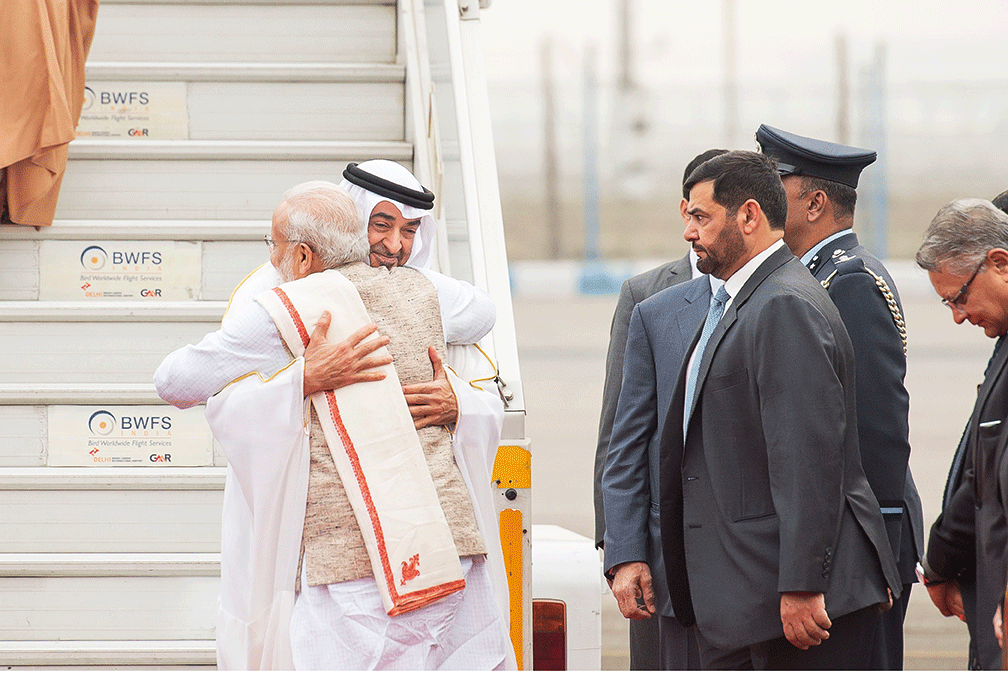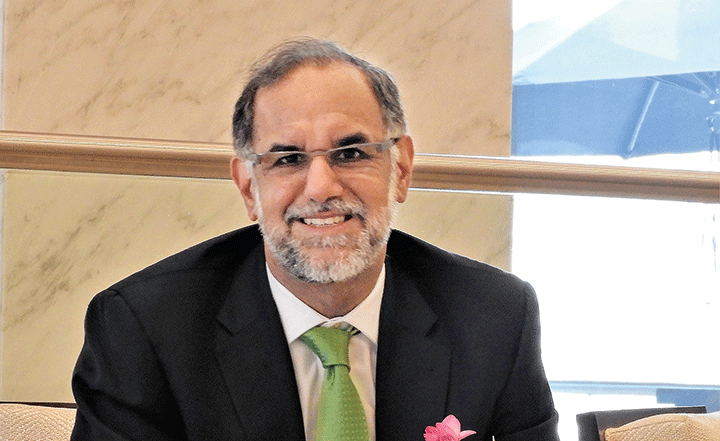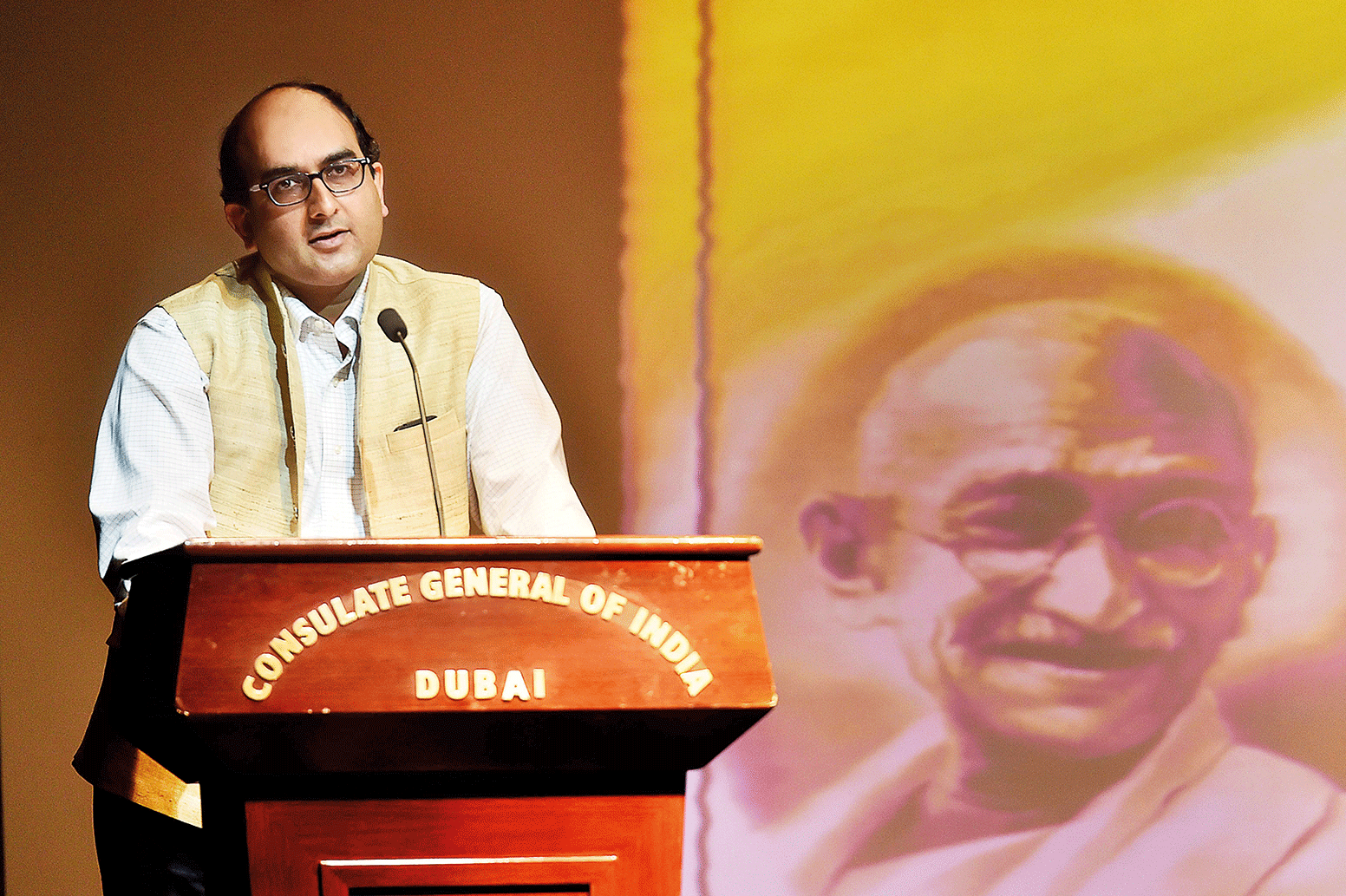Indian Prime Minister Narendra Modi’s visit to the UAE for the World Government Summit (WGS) next month doesn’t just extend his outreach to the Arab world but also offers an opportunity to further strategic partnerships in the UAE.
February 11-13 will see Modi’s second visit to the UAE. The first, in 2015, expanded the contours of the historic partnership to include defence, counterterrorism and investments as the key areas of focus. Modi will present a speech at WSG 2018 with India chosen as a guest of honour.
“This will provide an occasion for India to showcase the impressive strides it has made in using technology for development and governance,” says Vipul, Consul General of India in Dubai. “This event will also demonstrate the diversity of areas in which India-UAE friendship is growing, such as trade, investment, energy, culture, space and science and technology.”
Going from strength to strength
Relations between the two nations are being constantly strengthened and expanded with regular visits at the highest level on both sides, as well as investments from the UAE into India in recent years. Last year His Highness Shaikh Mohammad Bin Zayed Al Nahyan, Crown Prince of Abu Dhabi and Deputy Supreme Commander of the UAE Armed Forces, was the Chief Guest at the Republic Day celebrations in India. Previous visits over the decades have seen Shaikh Mohammad Bin Rashid Al Maktoum, Vice-President and Prime Minister of the UAE and Ruler of Dubai, visit India, and Indira Gandhi come to the UAE.
Following Modi’s visit, the UAE and India will conduct their first joint naval exercises by the end of March. “The decision to conduct the first-ever bilateral naval exercises is a reflection of the importance that our countries place on maritime cooperation,” says Navdeep Singh Suri, India’s Ambassador to the UAE. “It is also an integral part of the strategic partnership that we have forged and our determination to expand it in different dimensions.”
Two Indian naval ships, INS Teg and INS Trikand, had arrived at Zayed Port in Abu Dhabi, on a four-day visit in December last year to improve defence ties.
Welfare of its people
The Indian missions in the UAE are also responsible for the welfare of the large number of NRIs living in the UAE — estimated at more than three million, which is among the largest number of expatriates anywhere in the world.
In September, the Indian government opened a second Indian Workers Resource Centre (IWRC) in Sharjah. The centre has recorded 1,272 walk-ins and had conducted 134 counselling sessions until January. “This centre is expected to play an important role in providing support and advice in multiple languages,” says Suri.
Indian workers living in Sharjah, Ajman and the adjoining areas now have easy access to IWRC facilities. “They do not have to anymore travel all the way to Dubai if they wish to consult a counsellor in IWRC,” says Vipul. “We hope that as more workers get to know about this centre it will become even more effective.”
Meanwhile, the government’s eMigrate project for the recruitment of Indian workers across all the 17 Emigration Check Required (ECR) countries has garnered a positive response in the UAE. As of January 15, around 39,000 employers have used the system.
“It is already making a big difference in enhancing worker protection and checking the activities of unregistered recruitment agents,” says Suri. “We expect its efficiency to go up significantly once it is integrated into the counterpart UAE system.”
The eMigrate project helps prevent exploitation of blue-collar workers as it outlines the conditions of employment through contracts. Since workers are recruited through an identified agent if they secure a job through the system, the agent can be easily held accountable by Indian authorities if employment issues arise in the UAE. “Our data shows that 197,000 ECR category workers were recruited through eMigrate in 2017, which is about 20 per cent higher than in 2016,” says Vipul. “I should also clarify that any punitive action under eMigrate essentially applies through the recruiting agent in India.”
The missions conducted a number of awareness campaigns for blue-collar workers last year ranging from telecom fraud to the dangers of transporting banned medicines and alcoholism. “We have an active and ongoing programme of building awareness and cultural sensitivity among our blue-collar workers so they don’t inadvertently get into trouble,” says Suri.
The consulate plans to continue its outreach through awareness campaigns in labour camps this year. As of today, it will host an Open House on the last Friday of every month to benefit Indian expats who cannot reach the consulate on working days. “We will also in the coming weeks constitute some advisory committees to understand community issues even better and make more effective use of the Indian Community Welfare Fund from which we can give consular assistance to those Indians who cannot afford it,” says Vipul.
Passport issues
India’s Ministry of External Affairs recently announced a new orange passport for citizens who have not finished their 10th school-leaving examination, but the Indian missions in the UAE are yet to receive official notification about the passport reforms. A date for issuing the new passports has also yet to be announced.
All new passports are now to be issued without the address page at the end, which also carries the holders’ parents’ names. NRIs are worried new passports will no longer serve as a proof of Indian address, particularly since NRIs are not eligible for the biometric Aadhar identity card. Meanwhile, worshippers in the UAE could expect some good news about the first Hindu temple in Abu Dhabi, which was announced during Modi’s last visit. “You will hear some positive news in the next few weeks,” says Suri, without providing more information.
Cultural connections
Cultural ties between India and the UAE continue to be enhanced. Given the success of the India Fest, which had its eighth edition last year, many other initiatives are planned this year. “The India Fest is a major event on the cultural calendar of the Indian community in Abu Dhabi, but equally important is the fact that we will be participating in a big way in the Abu Dhabi Music and Arts Festival in March,” says Navdeep Singh Suri, India’s Ambassador to the UAE. India is the country of honour at the event, where sarod maestro Ustad Amjad Ali Khan will perform. Other artistes heading to the UAE this year include dancer Tanushree Shankar and the contemporary music act, the Raghu Dixit Project.
The Dubai Consulate regularly organises various cultural events both in the consulate as well outside in collaboration with the Indian community. A large number of cultural events are also organised by various private groups with the consulate’s support. “We will continue to host various cultural programmes related to dance, music, cuisine, fashion, festivals and literature in 2018 too,” says Vipul. “A major event during the year will again be the International Day of Yoga, which we hope to organise once more in all the emirates of the UAE with the support not only of the Indian community but also Emiratis and the entire international community.”















